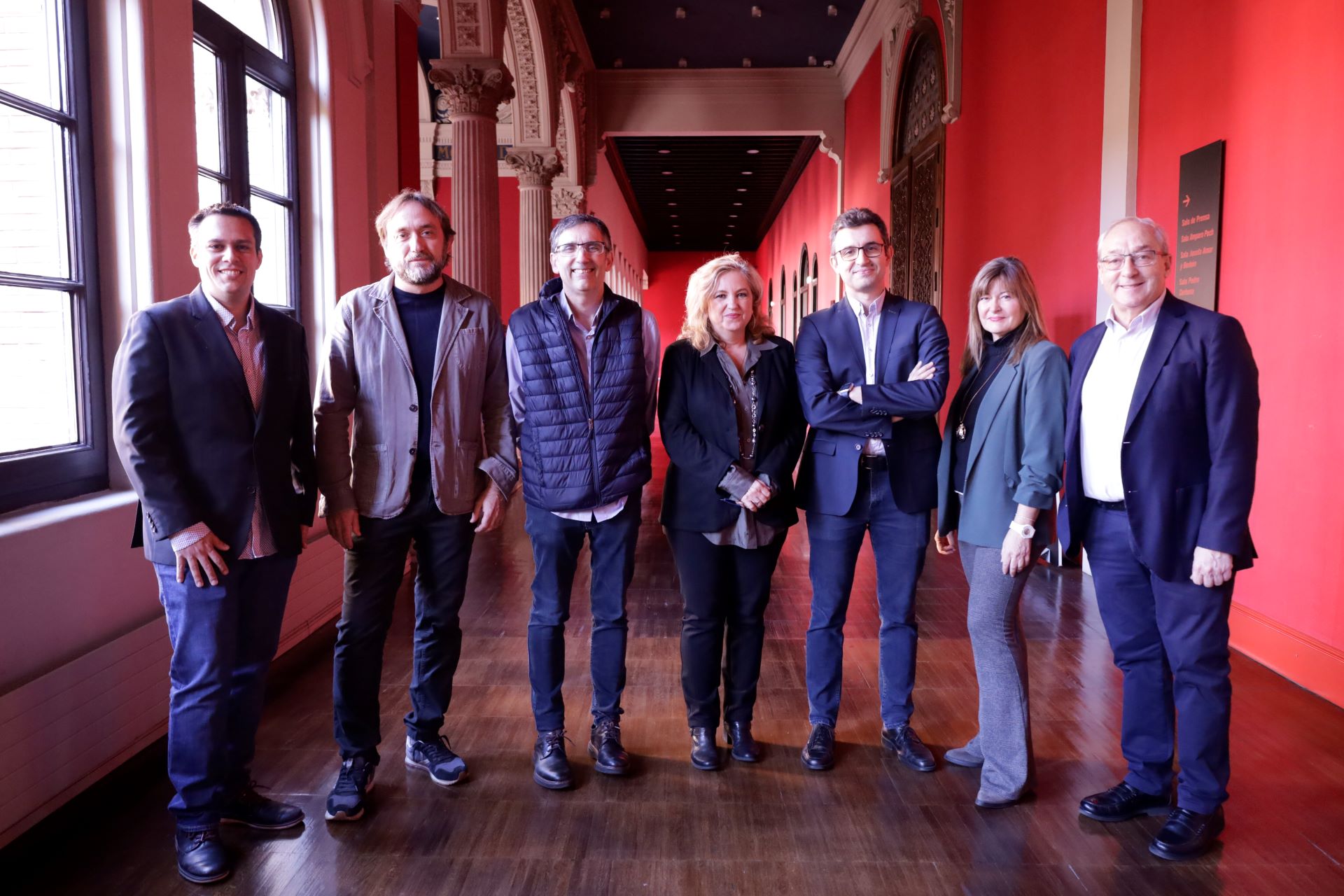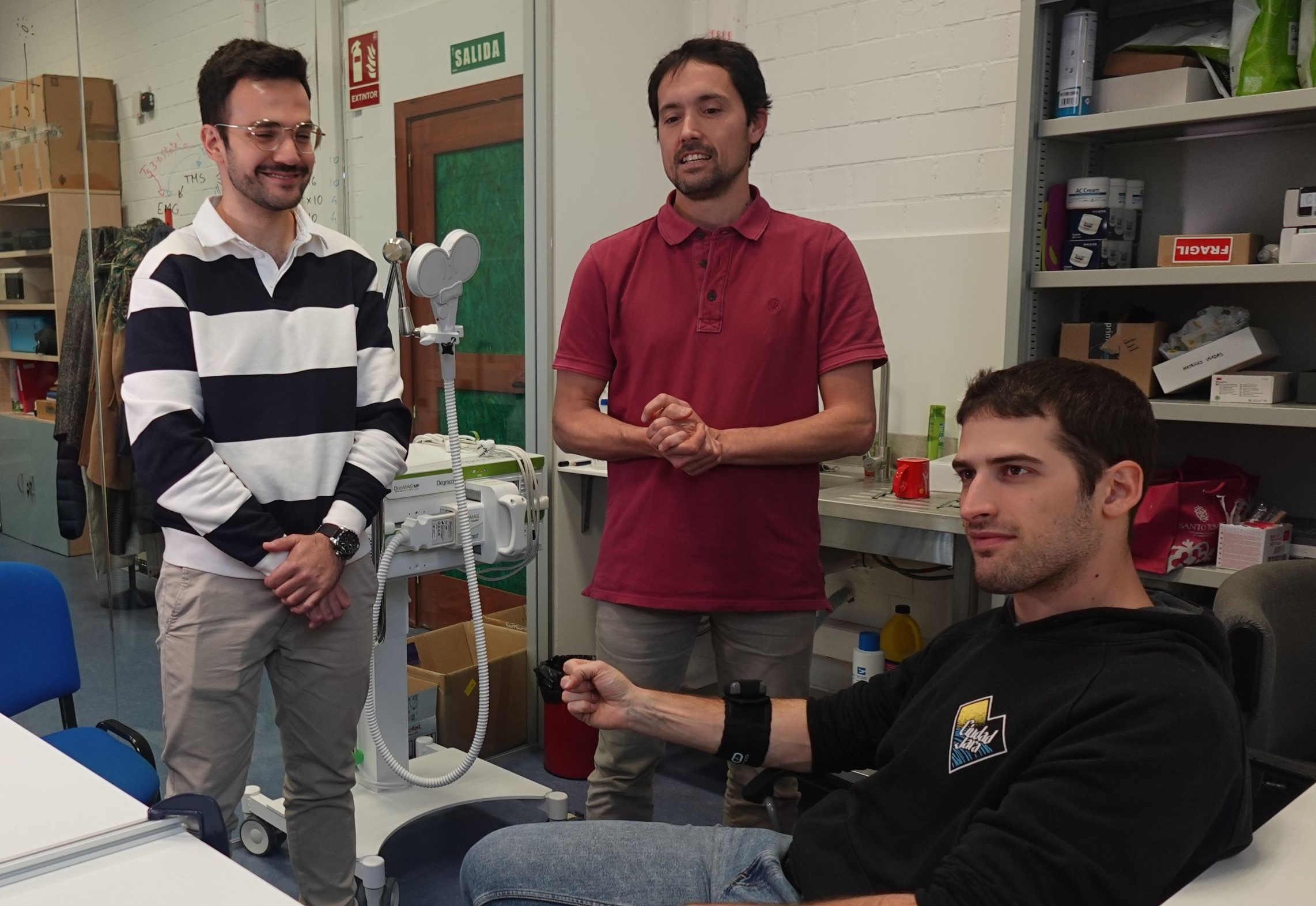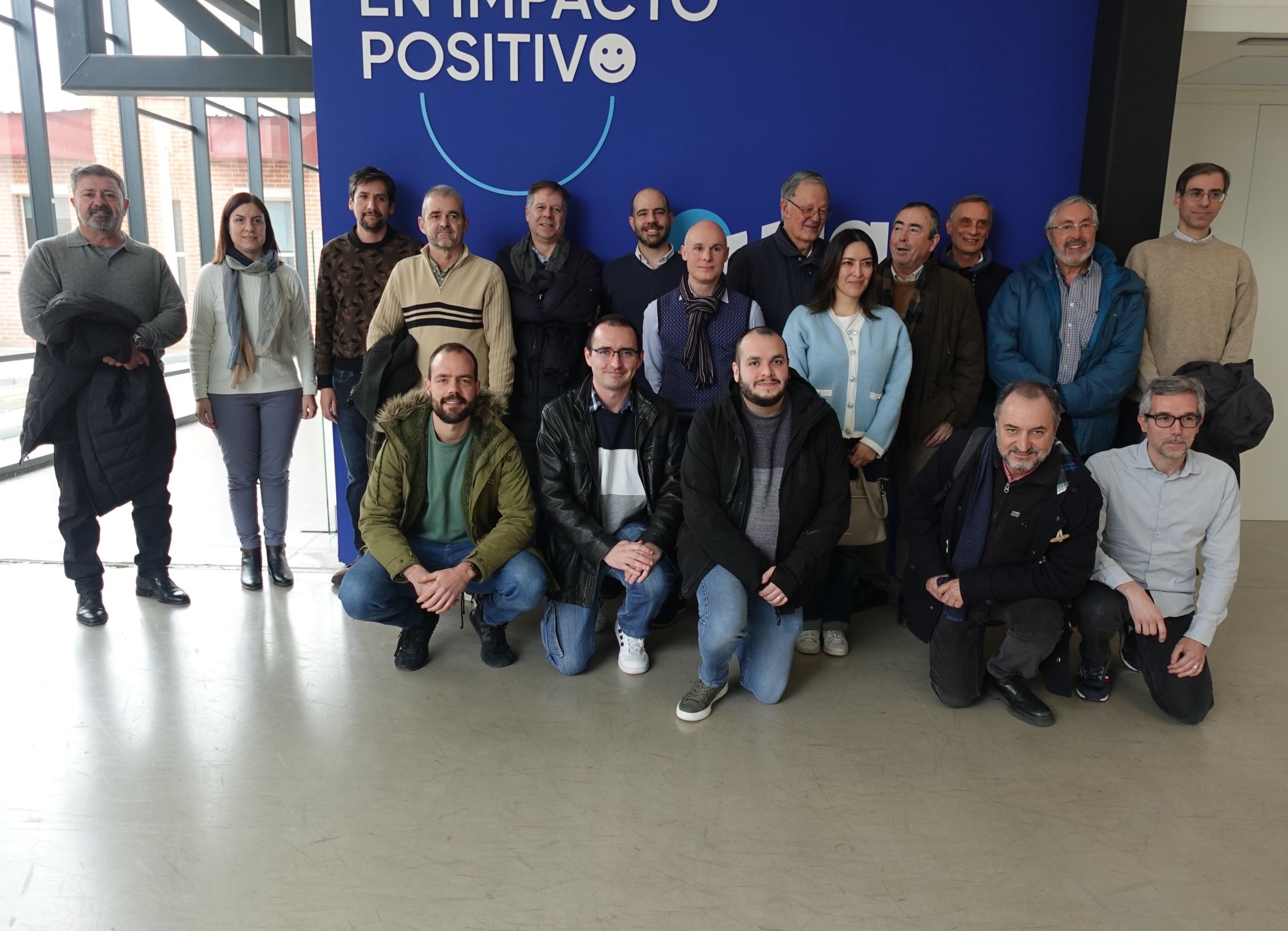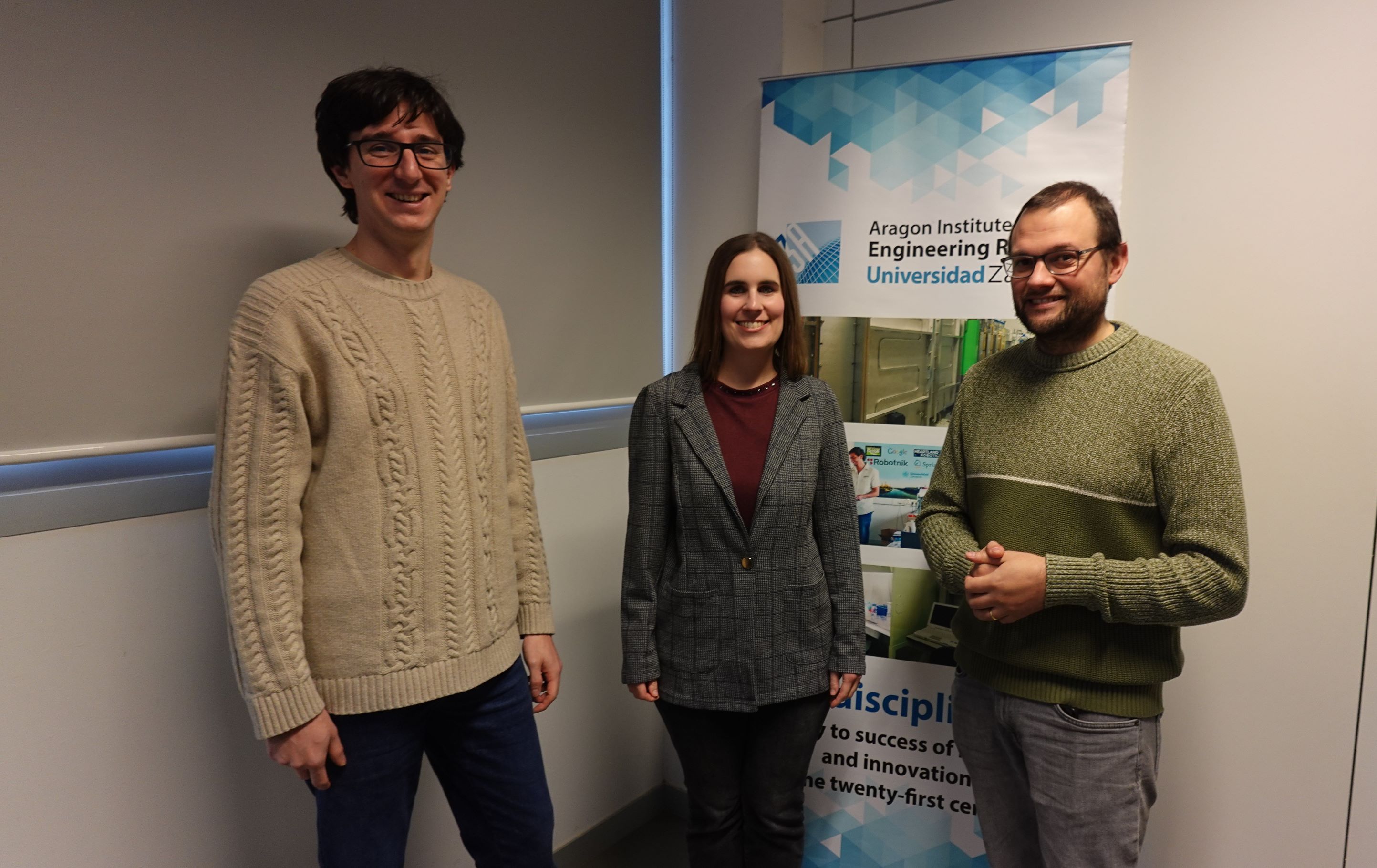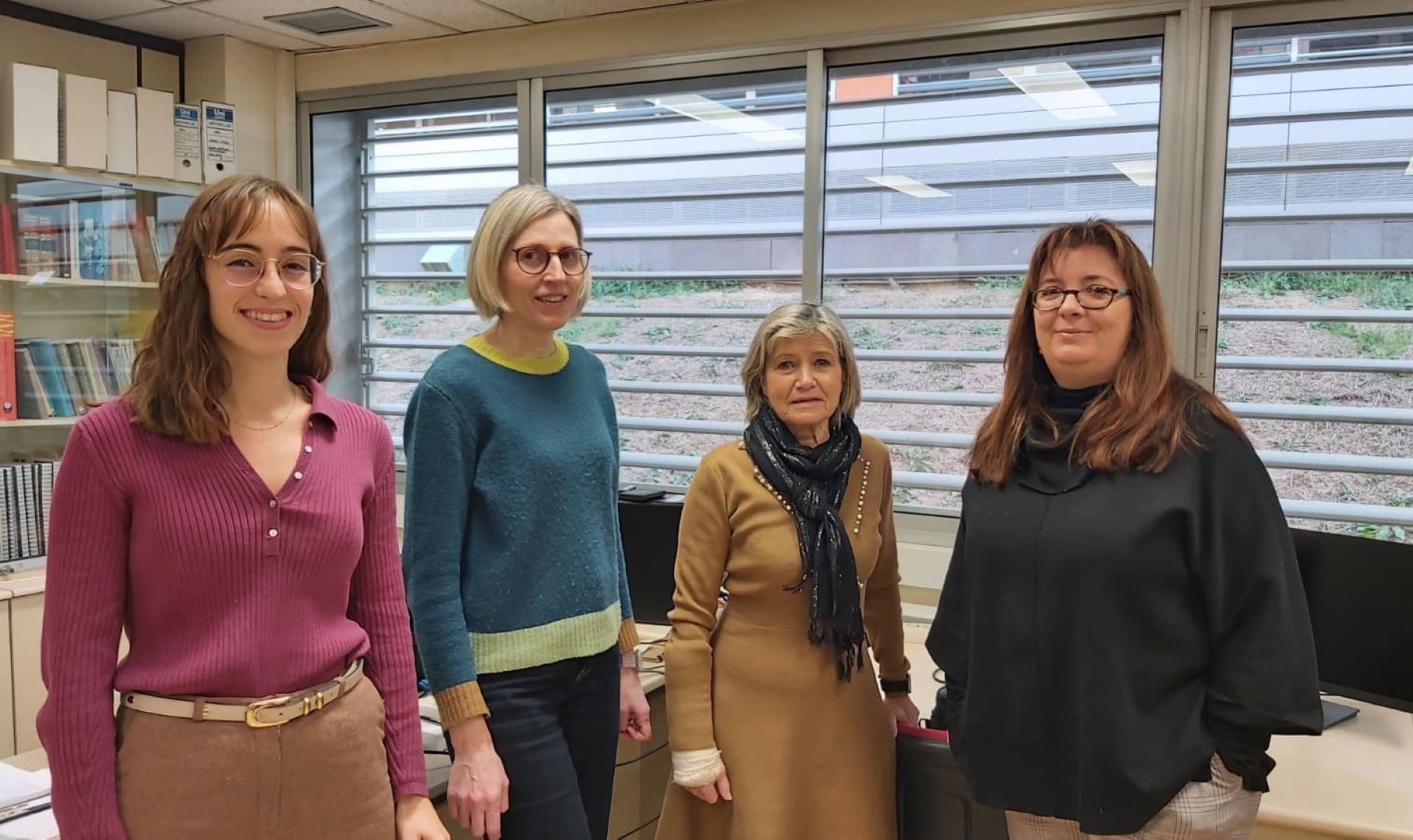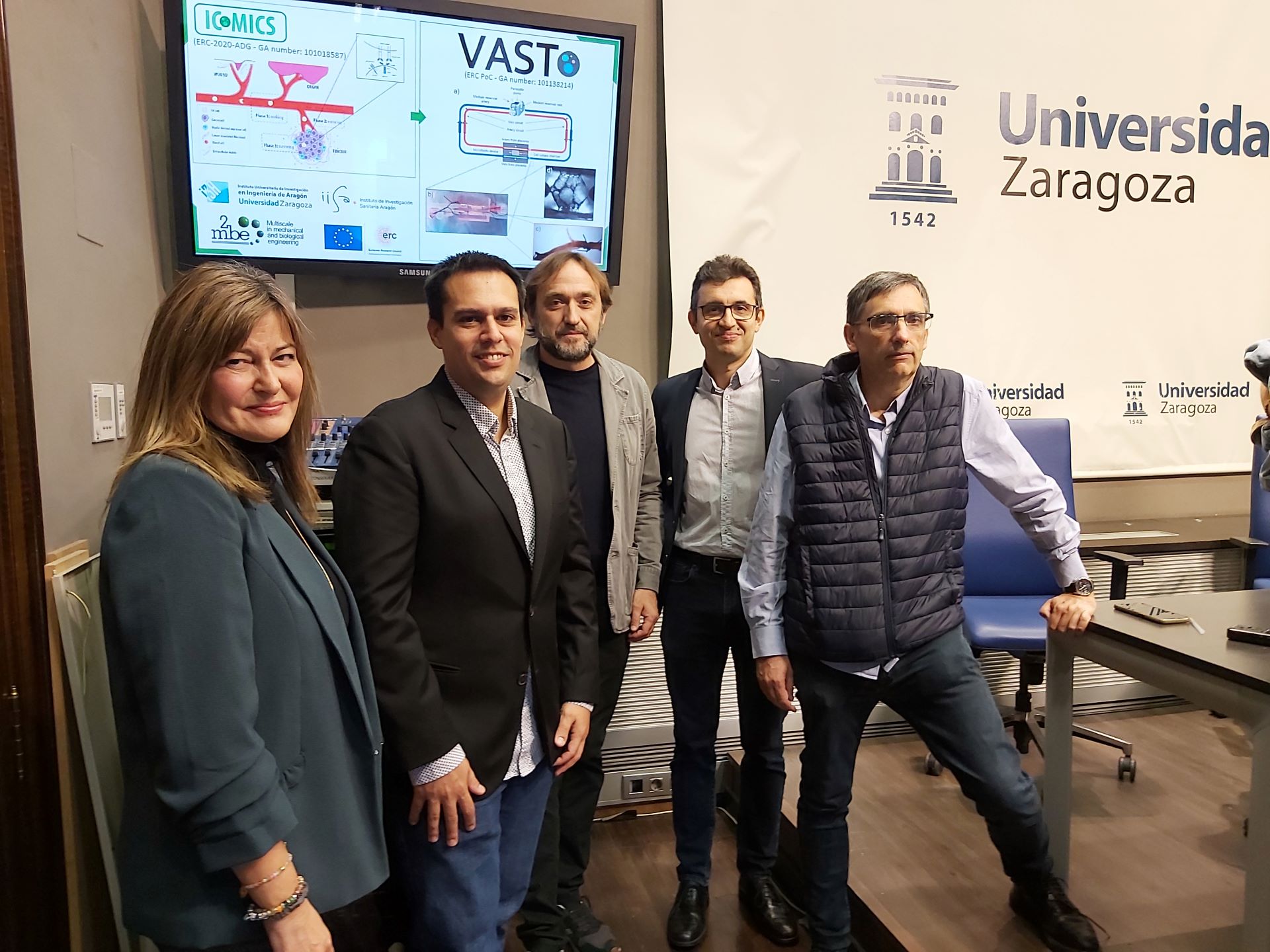
José Manuel García Aznar, a researcher at the Aragon Institute for Engineering Research (I3A) at the University of Zaragoza, began working in 2021 to find new ways to reach tumours as difficult to tackle as liver, pancreas and lung tumours and to unravel the mechanisms that reduce the effectiveness of CAR-T cell therapy in these tumours. To this end, he and his team began to develop the European ICoMICS project with two pillars, the laboratory manufacture of miniature organs and computer simulations of cell behaviour, combined with artificial intelligence techniques.
Now, this line of research is going one step further, to recreate the tumour, they will incorporate the recreation of the blood vessels inside the tumour. "We are going to design a cell culture system based on microfluidics, which allows us to test whether an immunotherapy treatment for a tumour is going to be effective or not. We are going to cultivate tumours with a vascular system and see if the cells we introduce can reach it or not and kill it," explains Professor García Aznar.
The new work proposal has been made possible thanks to funding from the European Research Council (ERC) with one of the 'Proof of Concept' grants. José Manuel García Aznar was one of 66 researchers to receive this grant, which is reserved for scientific staff with a current ERC project and is designed as complementary funding to transform pioneering research from the parent project into innovation, aimed at solving major societal challenges. The €150,000 ERC proof-of-concept grants are intended to transform theoretical research from the parent project into high-risk but high-benefit innovations.
The recreation of tumours
This opens up a new avenue to provide a response to patients with these tumours and makes it easier for doctors to apply the most efficient treatments. The research team's approach is that "the genetically modified cell has to be able to recognise, when it is introduced into the blood, where the tumour is, go to it, infiltrate and kill it, and what we do in the device is to recreate how the tumour grows and try to make it look like a real one. Now, we are going to create something similar to a vascular system, we introduce the cells to see if they are able to reach the tumour.
The objective is that part of the research being carried out within the ICoMICS project can be used to explore the possibilities of transferring this knowledge to society, to industry, that it can have an impact, that it does not remain in basic research.
With the additional funding they have obtained to develop this proof of concept, they will be able to study the possibility of going a step further, from creating a spin-off to a patent and bringing it to the market. This is why an economic and market feasibility study has been included to find out what technologies exist and what possibilities and needs are detected.
The research team has 18 months to take it forward.
The VASTO project (Vascularised Tumour Organoids on a chip with human placenta vessels as a preclinical model for anticancer therapies) will be developed through a strongly multidisciplinary approach involving different research groups from the University of Zaragoza and the Health Research Institute of Aragon (IIS). Four researchers and their teams are participating: José Manuel García Aznar, PI of the ICoMICS project and PI of the current project, member of the Aragon Institute for Engineering Research (I3A) of Unizar. Pedro Baptista, ARAID researcher at IIS and CIBERehd, expert in tissue engineering. These two groups will be responsible for the design, development and manufacture of the microfluidic platform; Julián Pardo, research expert in immunotherapy at Unizar and member of the IIS, will be in charge of the design and manufacture of CAR-T cells to attack tumour organoids. And finally, Raquel Ortega, lecturer at the Faculty of Economics and Business and member of the IEDIS, will be responsible for studying the market for this product, as well as its possible commercialisation.
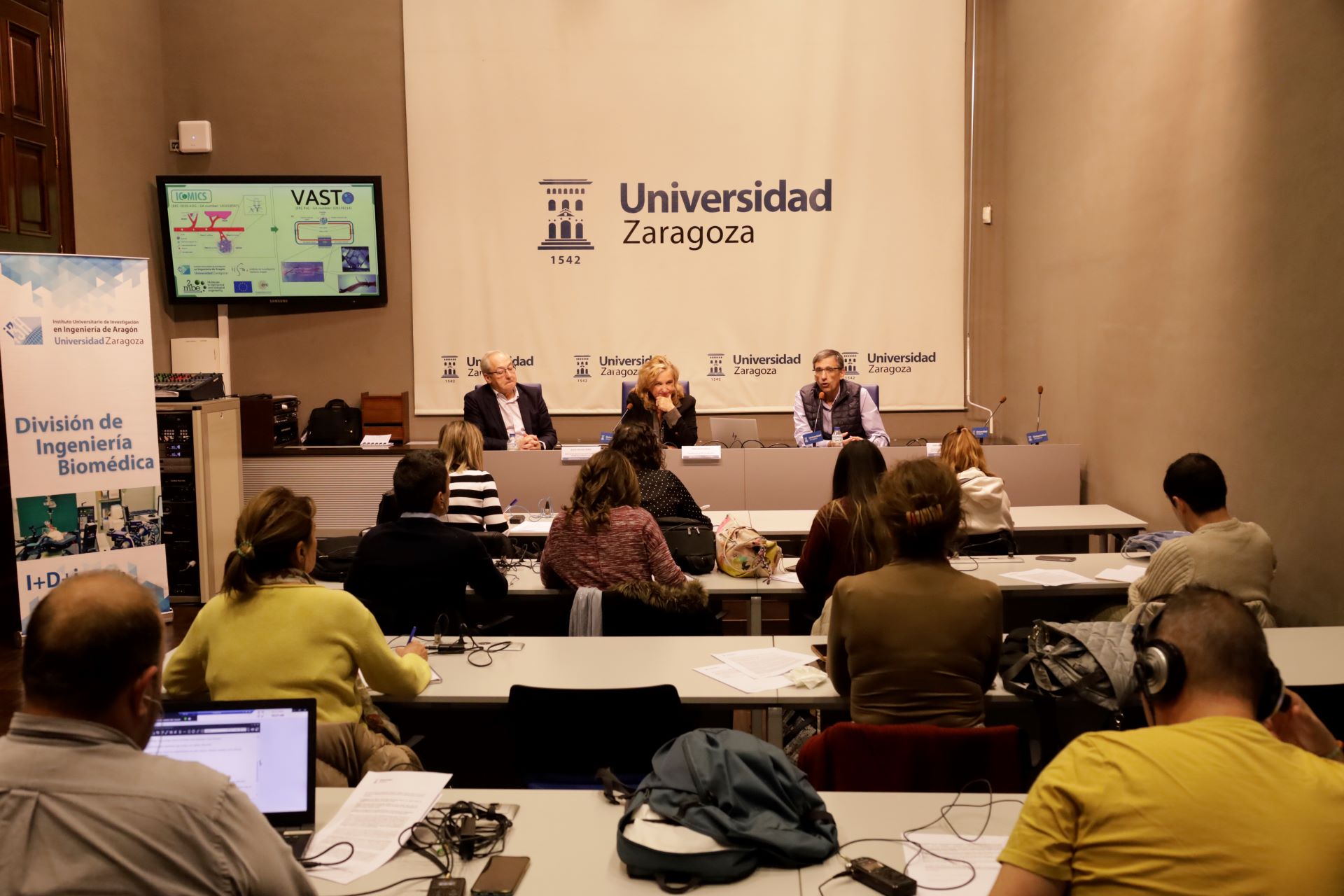
Other relevant members of the teams are Alejandra González Loyola (I3A Unizar) expert in vascular biology research and cancer therapeutics and Diego Sánchez who, together with Julián Pardo, are the scientific directors of the new Advanced Cell Therapy Unit at IIS Aragón/Hospital Miguel Servet where CAR-T cells will be produced under GMP conditions to be tested in clinical trials.
ICoMICS started in early 2022, with an ERC 'Advanced Grant' of around €2.5 million. The researchers involved face similar problems to those on the clinical side. They are treatments with high toxicity, which generates problems for patients, and that is what they face in the research, according to researcher García Aznar. "In the recreation of tumours in both pancreas and liver, progress is being made, the most complicated part is the work with the cells of the immune system".
ICoMICS aims to advance the understanding of the mechanisms that reduce the efficacy of CAR-T cell therapy in solid tumours of the liver, pancreas and lung and that this knowledge can be extended to other solid tumours (neuroblastoma, breast, colon, etc.).
José Manuel García Aznar carries out his research work at the University of Zaragoza, he belongs to the Aragon Institute for Engineering Research (I3A), to the M2BE research group (Multiscale in Mechanical and Biological Engineering). He is a mechanical engineer and is part of the Department of Mechanical Engineering, of the Area of Mechanics of Continuous Media and Theory of Structures at the School of Engineering and Architecture (EINA).
It applied for the ERC-2023-POC call of the Horizon Europe Innovation Framework Programme with the VASTO project, in the context of the ICoMICS project, for which it has been successful in obtaining funding.
With this new award, the total number of ERCs at the University of Zaragoza increases from 15 to 16 ERC projects, with an overall funding of €28.6M from the European Research Council, the European Union's largest and most decisive commitment to research. Specifically, the 17 ERC projects obtained from 2009 to date are distributed in five categories: Starting (6), Consolidator (3), Advanced (4) and Proof of Concept (2) and a Synergy Grant. This was highlighted today by the Vice-Rector for Science Policy, Rosa Bolea, together with the Director of the I3A, Jesús Arauzo, at the presentation of this project at the Paraninfo, where she congratulated the mechanical engineer José Manuel García Aznar "for the new award of excellence obtained from the European Research Council".
Link to the press conference: https://youtu.be/G3SkbuYX6Zo
